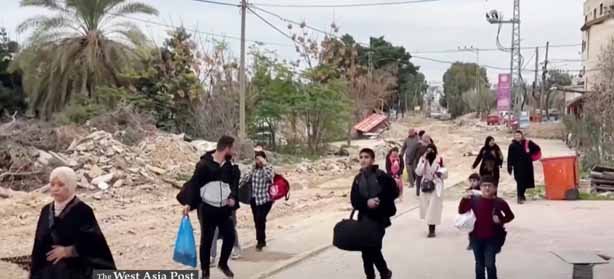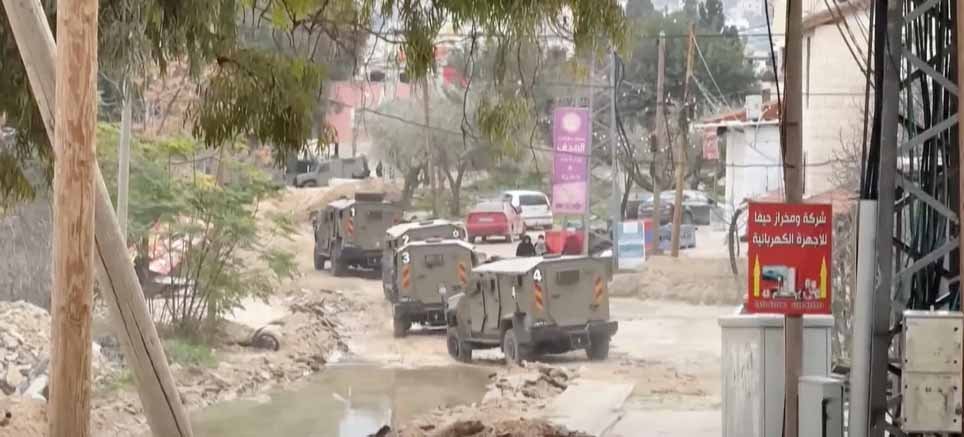January 24, 2025
Israel’s military operations in the West Bank city of Jenin keep intensifying while the delicate truce in Gaza continues, causing global anxiety and alert among local people. These activities emphasize the wider consequences of the continuous Israeli-Palestinian conflict at a period when world attention is concentrated on the fragile balance of peace in Gaza.
Israeli Military Events in Jenin
Targeting a car in the West Bank village of Qabatiya, close to Jenin, an Israeli drone strike took place on January 24, 2025. Two people were killed by the strike; Israeli military described them as members of a “terrorist cell” supposedly involved in planning strikes on Israeli targets. Reuters claims that this attack fits a larger military effort starting in the Jenin area earlier this month. Israel claims that its military operations target Palestinian militant organizations—including those supposedly supported by Iran—who are purportedly planning attacks against Israel.
This operation followed a series of Israeli raids into Jenin, during which military personnel have damaged structures and conducted sweeps through the city, targeting suspected militants. However, these raids have resulted in civilian casualties as well, with at least 15 Palestinians reported dead and scores more injured since the operation began. According to local witnesses, the actions have also led to extensive property damage, displacing hundreds of households. Human rights groups contend that the Israeli army’s use of airstrikes and heavy artillery is disproportionate and against international law, while the army insists that it is focusing on particular dangers such bomb-making facilities and militant commanders.
In the wake of the violence, the United Nations has expressed alarm over the deaths of Palestinian civilians, urging Israel to comply to international humanitarian law. A report by The Guardian underlines that the UN is particularly worried about the use of fatal force in populated areas, where many people, including children, have been caught in the crossfire.
Humanitarian Impact and International Response
The escalating bloodshed in Jenin has received severe criticism from the international community. Human rights organizations, such as Amnesty International and Human Rights Watch, have condemned Israel’s actions, arguing that they amount to collective punishment against the Palestinian population. A story by The Guardian highlights that many people of Jenin are enduring tremendous hardship as a result of the blockade of roadways, shortages of essential supplies, and limited access to medical care.
Local hospitals are overloaded, struggling to treat the inflow of wounded from airstrikes and military clashes. One witness, Rania al-Masri, a Jenin resident, told how she was forced to evacuate her home after an Israeli drone strike demolished a structure just a few blocks away. “The streets are flooded with rubble, and we have no place to go. The military doesn’t care about the civilians—they are just trying to wipe us off,” she claimed.
The United Nations Relief and Works Agency (UNRWA) has delivered emergency aid to the region, but the growing fighting continues to impede relief efforts. According to The New York Times, the UN has asked for an immediate stop of hostilities to allow humanitarian convoys to reach those in need.

Gaza Ceasefire Developments
In contrast to the escalating violence in the West Bank, the ceasefire in Gaza, negotiated by Egypt and Qatar, has mainly held since January 2025. Under the conditions of the agreement, Hamas has committed to free hostages detained since the rise of fighting last year in exchange for Palestinian inmates. On January 25, 2025, Hamas freed four Israeli army hostages, including a female soldier, in a highly publicized exchange for 200 Palestinian detainees, primarily nonviolent offenders. The trade was met with mixed emotions in Israel, where some applauded it as a step toward peace, while others lambasted it as a capitulation to terrorism.
According to Reuters, Israeli Prime Minister Yair Lapid highlighted that while the release of hostages was a nice gesture, the Israeli government remained resolute in its stance on the broader war. “We will continue to safeguard the security of our citizens, and the release of hostages does not change the fact that Hamas remains a terrorist organization,” Lapid stated during a press conference.
Despite the relative peace in Gaza, tension remains high. The ceasefire is shaky, and some observers fear that the success of the Gaza truce may encourage more extreme forces, increasing the volatility of the West Bank and the larger area.
Broader Implications for the Region
The ongoing military operations in Jenin, situated against the backdrop of a tenuous ceasefire in Gaza, show the complexity of the Israeli-Palestinian conflict. While Gaza has enjoyed a temporary break from violence, the situation in the West Bank continues to deteriorate, increasing fears of future escalation. The acts in Jenin underscore the significant differences across Israeli and Palestinian society and the broader geopolitical struggles that influence the war.
The situation in Jenin is a vivid reminder that peace is elusive in the region. According to The Washington Post, the continued bombing of terrorist leaders and infrastructure in Jenin could lead to a wider regional conflict, since additional militant groups from neighboring countries may be lured into the combat. The international community has called on all parties to return to the bargaining table, but with the situation getting increasingly dangerous, the prospects for a permanent peace agreement remain doubtful.
As the world watches the situation unfold, the focus on Jenin and Gaza will remain vital in choosing the future of Israeli-Palestinian relations. The persistent loss of civilian life in the West Bank and the precarious nature of the ceasefire in Gaza further emphasize to the necessity for a resolution that addresses the basic causes of the conflict.
Sources
- Reuters: “Israeli drone strike kills two in major ongoing West Bank operation”
- The Guardian: “UN concerned by Israeli use of ‘unlawful lethal force’ in West Bank”
- Reuters: “Hamas frees four Israeli hostages in swap for Palestinian prisoners”
- The New York Times: “Humanitarian Crisis in Jenin as Israeli Military Operations Escalate”
- The Washington Post: “Rising Tensions: The Impact of Israeli Operations in Jenin on Regional Stability”

